Simon Says: How to make a viral video & get your content retweeted
You don’t make viral videos. Sorry, the truth hurts.
As a conciliation prize I’ll tell you that you were half right. You do make videos. But it’s the public that makes a viral, so you shouldn’t be selling it to a client under that label.
I’ve been in meetings where someone has foolishly thrown around the phrase “viral video” all too often. In the mind of someone not in the industry it conjures up all sorts of clichés like a million views in 24 hours, people passing the video around like a bottle at a 16-year-olds birthday party and comments as far as the eyes can see.
In reality over 35 hours of video content is uploaded to YouTube every minute. Although the site gets way over one billion views a day, they’re not evenly spread. Around 5-10% of the uploaded videos will get the lions share of viewers and the rest might get 25 views, if they’re lucky.
Although there’s no formula for making a viral video I have a firm belief that a video needs to be either really bad (Rebecca Black – Friday) or really interesting (with a very broad definition). But above all it needs to not be heavily branded for the most part. You can tack on your companies logo / product / service at the start or end of the clip but don’t have it running the whole way through. Very few “virals” contain the products name throughout the clip.
Given that the attention span of most viewers is constantly decreasing, I always highly recommend having videos between one and three minutes in length. This helps eliminate the waffle and give the highest probability that people will watch the whole thing.
Having said that, there’s no way of knowing what will go viral. Fact. As a result, selling something with that label is false advertising.
Not all videos need to hit “viral” status to be effective. Sounds strange, but it’s true. Say you have a niche product or service with a (relatively) small target market. Getting 10,000 views is an achievement in itself if you only have a target audience of 1 million. You might want more than 1% of your target market to view the video, but even if everyone you’re targeting views the clip, not all of them will buy it and besides the intention of a video online is to get the product in the mind of the consumer, not about the arbitrary viewing figure.
How do you increase the chances of people finding (and watching) your video?
Much like journalism, it all comes down to the title. Keywords are helpful, but ultimately people’s choice to view or not to view a video will depend heavily on if the title is intriguing enough to them.
If you want to know how to get better results from your video's title you should investigate how your target market is searching. Google Trends is perfect for this. Type in the keywords that you were thinking of using, filter it down by the country / region of your target audience, then finally select how far back you want Google to search.
The results will show you which links are most popular; by judging the titles of the web pages you can see what topics, words or phrases have interested your target audience.
Google Trends is a free tool that is invaluable for seeing if a video is even worth making in some cases. It’s only downside is if the key terms don’t get enough traffic you’ll get no graph, but then you need to ask yourself if you can change the terms to appeal to a wider audience.

I also find using the Facebook Ad creation tool a great way of isolating potential keywords. By using the “exact interest” options instead of Pages people have liked I can get a more accurate estimation of the audience. I also prefer using the hashtag topics to see how many people have been interested in a certain keyword.
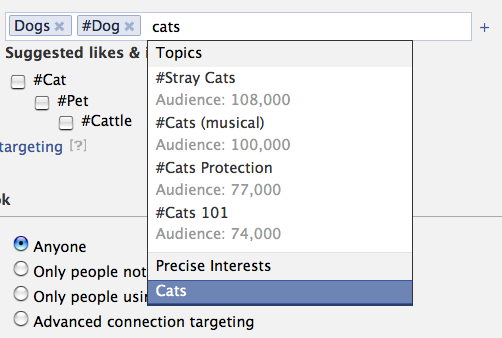
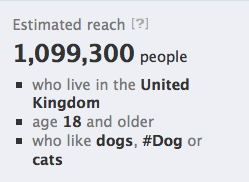
Once I’ve chosen the keywords I think historically have the largest audience, I test them to see if they are still the “hot topic” for my target market. Google Insights lets me browse by web interests. It gives me a great heatmap showing where the searches have come from and a “rising trends” section. This can help me make last minute adjustments to the keywords / title of a video before it goes live.
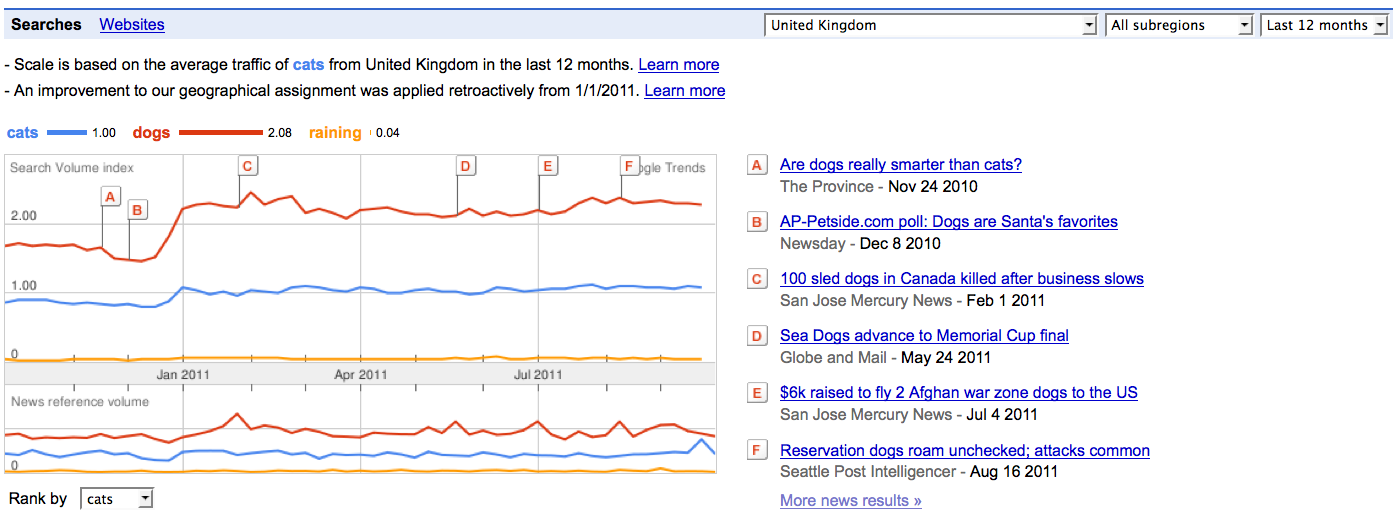
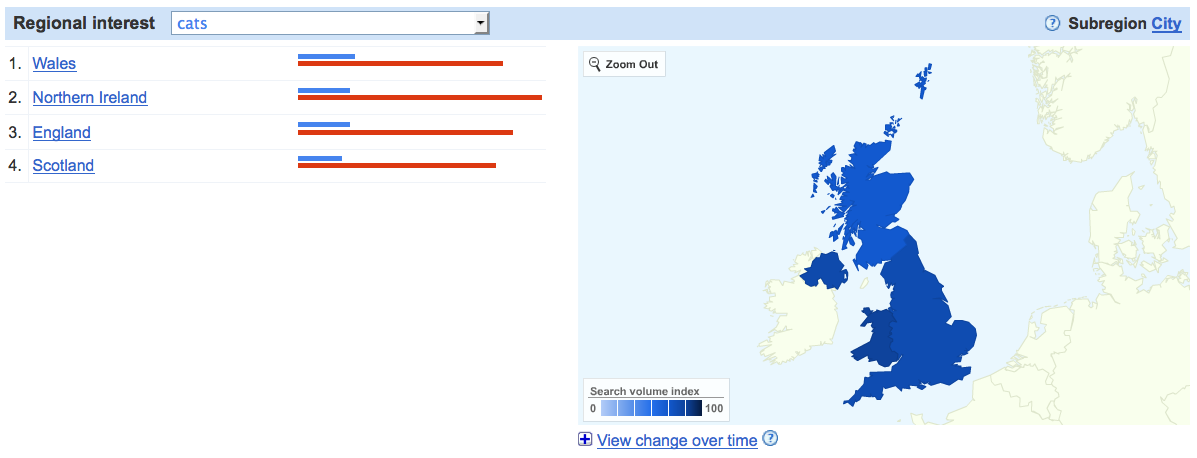
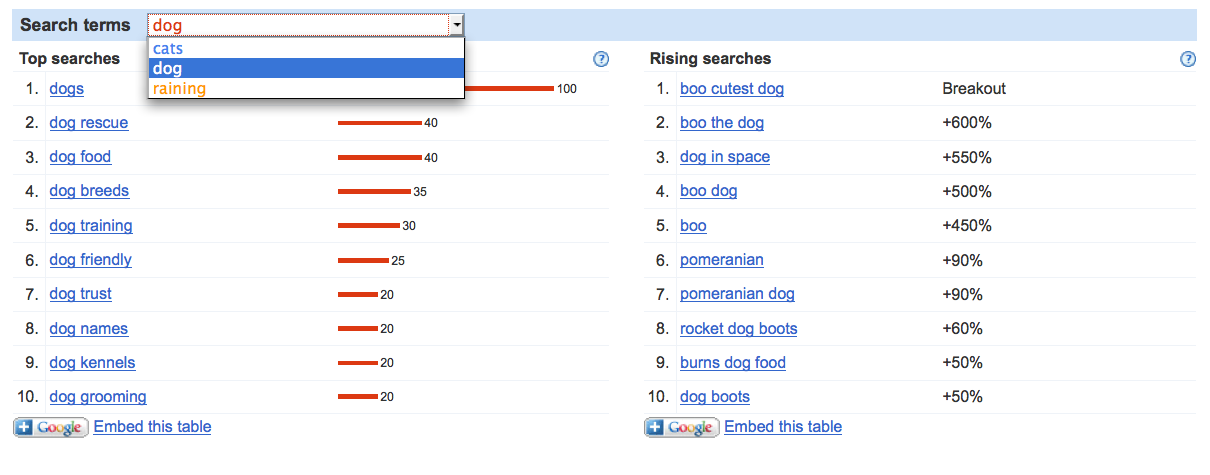
Even with all this research, nothing guarantees a video's 'success' online. So if you have to use the phrase "viral video" in a pitch, you should expectation manage what that means in real terms for the client.
I realise sometimes you don't have time for all this research so there is a "quick fix" to getting noticed on websites and social media sites. It’s less risky but definitely the best option when your time is low. Simply pander to a general interest you know will grab the attention of a large portion of your target market. An example title of this would be – “How to make a viral video & get your content ReTweeted”.
Screenshot from video (c) gardea23



